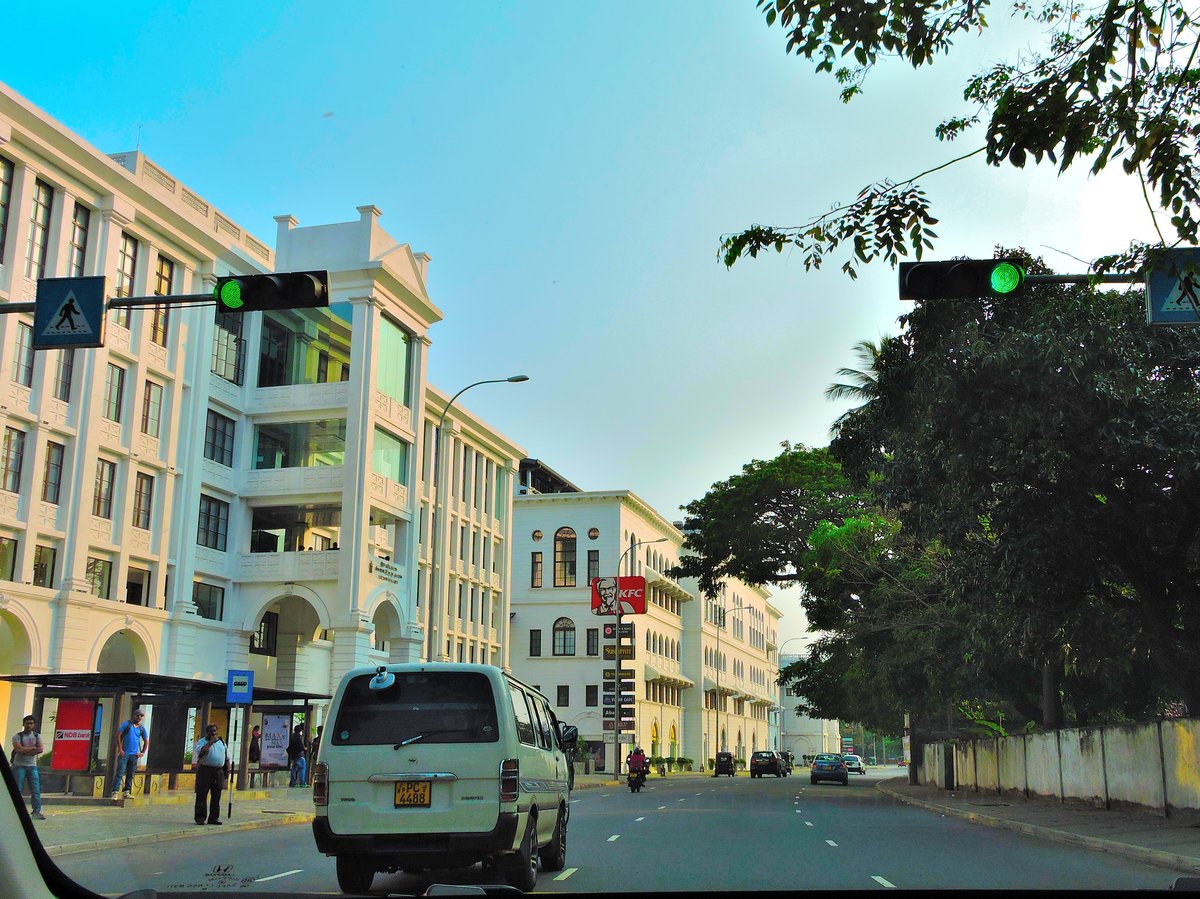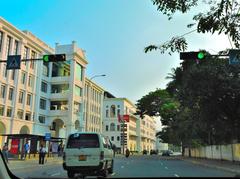
Townhall Bus Stop Visiting Guide in Wattala, Sri Lanka
Publication Date: 24/07/2024
Introduction to Townhall Bus Stop
Wattala, a bustling suburban town located approximately 12 kilometers from Colombo, Sri Lanka, has undergone significant transformation over the years. Initially an agricultural hub, Wattala has evolved into a vital suburban area due to its strategic location near the Kelani River and Colombo. The town’s development is closely tied to Sri Lanka’s colonial past, with infrastructural advancements made during the Portuguese, Dutch, and British colonial periods. Notable among these is the Dutch Canal, also known as the Hamilton Canal, constructed in the 18th century to facilitate irrigation and create an inland transportation system (TravelTriangle).
The Townhall Bus Stop in Colombo is a crucial transportation hub that plays an integral role in connecting Wattala to various parts of the city and its suburbs. Located near the Colombo Town Hall, a significant colonial-era building, the bus stop is not only a functional node in the urban transport network but also a symbol of Colombo’s rich colonial heritage. This connectivity has been essential for Wattala’s urban development, making it easily accessible from Colombo and other parts of the Western Province (EverybodyWiki).
The development of transportation infrastructure in Wattala, including the introduction of bus services and the establishment of key transportation nodes like the Nayakakanda Bus Stop, has been pivotal in transforming the area from a rural locality to a thriving suburban town. This evolution has facilitated the movement of people and goods, contributing significantly to Wattala’s economic growth and making it a vibrant residential and commercial hub (SriLanka-Places).
Contents Overview
- Wattala - A Brief Historical Overview
- Townhall Bus Stop - Historical and Modern Significance
- Evolution of Transportation in Wattala
- Cultural and Social Impact
- Modern-Day Significance
- Visitor Tips
- Frequently Asked Questions
Wattala - A Brief Historical Overview
Wattala, located approximately 12 kilometers from Colombo, the capital city of Sri Lanka, has evolved from a predominantly agricultural area into a bustling suburban locale. Historically significant due to its strategic location near Colombo and the Kelani River, Wattala reflects broader urbanization trends in Sri Lanka.
Wattala’s history is closely linked with the colonial past of Sri Lanka. During the Portuguese, Dutch, and British colonial periods, the area saw infrastructural developments, including the construction of canals and roads. The Dutch Canal, also known as the Hamilton Canal, is a notable historical landmark. Constructed by the Dutch in the 18th century, this canal facilitated irrigation and created an inland transportation system, connecting the Kelani River in Colombo to the Puttalam Lagoon (TravelTriangle).
Townhall Bus Stop - Historical and Modern Significance
The Townhall Bus Stop is a crucial transportation hub in Colombo, serving as a gateway to various parts of the city and suburbs, including Wattala. It is strategically positioned near the Colombo Town Hall, a significant colonial-era building. Built during the British colonial period, the Town Hall is an architectural marvel and symbol of Colombo’s rich colonial heritage.
Bus routes from the Townhall Bus Stop cover extensive areas, including major landmarks and suburbs like Wattala. This connectivity has been vital in the urban development of Wattala, making it easily accessible from Colombo and other parts of the Western Province (EverybodyWiki).
Evolution of Transportation in Wattala
The development of transportation infrastructure in Wattala has been crucial in its transformation from a rural area to a suburban town. The introduction of bus services connecting Wattala to Colombo and other significant locations has facilitated the movement of people and goods, contributing to the town’s economic growth.
The Nayakakanda Bus Stop on Hendala Road in Wattala is a key transportation node, connecting residents to various parts of Wattala and beyond. The presence of numerous businesses and services around this bus stop highlights its importance as a commercial hub (SriLanka-Places).
Cultural and Social Impact
The development of transportation infrastructure, including the Townhall Bus Stop and local bus services in Wattala, has had a profound cultural and social impact. The ease of access to Colombo has allowed Wattala residents to engage more actively with the capital city’s cultural and economic activities. This connectivity has also facilitated diverse cultural influences, enriching Wattala’s social fabric.
Wattala is home to several cultural and recreational sites. The Muthurajawela Marsh, a unique wetland ecosystem, offers a glimpse into the area’s natural heritage. It is a popular destination for eco-tourism, attracting visitors interested in bird watching and exploring the region’s rich biodiversity (TravelTriangle).
Modern-Day Significance
Today, Wattala is a vibrant suburban town with a mix of residential, commercial, and industrial areas. Continuous development of transportation infrastructure, including the Townhall Bus Stop, has ensured that Wattala remains well-connected to Colombo and other key locations. This connectivity has been instrumental in attracting businesses and residents, contributing to its ongoing growth and development.
The Townhall Bus Stop continues to be a vital transportation hub, facilitating the daily commute of thousands of people. Its historical significance, coupled with its modern-day utility, makes it an essential part of Colombo’s transportation network. The bus stop’s proximity to significant landmarks, such as the Viharamahadevi Park and the National Museum of Colombo, further enhances its importance (TravelTriangle).
Visitor Tips
For tourists visiting Wattala and the Townhall Bus Stop, here are some practical tips:
- Plan Your Route - Utilize online resources and maps to identify the best bus routes and stops for your destinations.
- Explore Local Attractions - Visit local attractions such as the Dutch Canal, Muthurajawela Marsh, and nearby cultural sites in Colombo, including Viharamahadevi Park and the National Museum of Colombo.
- Engage with Locals - Interacting with local residents can provide valuable insights into Wattala’s history and culture.
- Stay Safe - While Wattala is generally safe for tourists, always stay vigilant, especially in crowded areas like bus stops.
Frequently Asked Questions
Q: What are the visiting hours for Wattala? A: Wattala is accessible 24/7, but specific attractions like the Muthurajawela Marsh may have set visiting hours. Check local resources for exact timings.
Q: How do I get tickets for the Townhall Bus Stop? A: Tickets can be purchased at the bus stop or through local transportation apps. Prices vary depending on the route.
Q: What are some nearby attractions? A: Nearby attractions include the Dutch Canal, Muthurajawela Marsh, Viharamahadevi Park, and the National Museum of Colombo.
Q: Is Wattala accessible for people with disabilities? A: While accessibility varies, many public areas and transportation hubs in Sri Lanka are becoming more inclusive. It’s advisable to check specific facilities in advance.
Conclusion
Understanding the historical context and significance of Wattala and the Townhall Bus Stop enhances the appreciation of this suburban town’s rich heritage and vibrant culture. Whether exploring the natural beauty of the Muthurajawela Marsh or delving into the colonial history of Colombo, Wattala offers a unique and enriching travel experience.
Stay up to date with the latest travel tips and attractions by following us on social media or downloading our mobile app. Explore other related posts on our site for more insights into Sri Lanka’s fascinating destinations.
